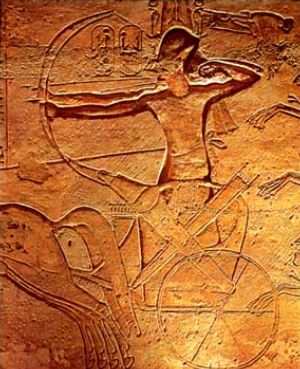 G. K. Chesterton once said, "A religion is not the church a man goes to but the cosmos he lives in." Never have cosmoses been so much at war than in our world today. One religion, whose most pharisaical followers are quite ostensibly willing to kill (or be killed -- it is all one to them) any who forswear the Koran, sees its founder, Mohammad, as the perfect man. What he did, they shall with confidence do themselves. A second combatant, the Christian faith, sees its founder as the Incarnate One, the divine Second Person of the Most Holy Trinity, the "word made flesh," [Jn 1,14] a scandal to the Jews [and Muslims, of course], and folly to the Gentiles. What He did, his followers find nearly impossible to do, try as they may. A third combatant in this war of cosmoses, secularist and atheist individualism, falls inexorably back into a newer form of paganism, but refuses to see its religion for what it is. Its name is Legion. We will speak of it in part three.
G. K. Chesterton once said, "A religion is not the church a man goes to but the cosmos he lives in." Never have cosmoses been so much at war than in our world today. One religion, whose most pharisaical followers are quite ostensibly willing to kill (or be killed -- it is all one to them) any who forswear the Koran, sees its founder, Mohammad, as the perfect man. What he did, they shall with confidence do themselves. A second combatant, the Christian faith, sees its founder as the Incarnate One, the divine Second Person of the Most Holy Trinity, the "word made flesh," [Jn 1,14] a scandal to the Jews [and Muslims, of course], and folly to the Gentiles. What He did, his followers find nearly impossible to do, try as they may. A third combatant in this war of cosmoses, secularist and atheist individualism, falls inexorably back into a newer form of paganism, but refuses to see its religion for what it is. Its name is Legion. We will speak of it in part three.As I said, the first of these religions in whose "cosmos" its followers live see Mohammad as the "perfect man." He not only took down, word for word, the revelation of Allah to him in the Koran, but, as Allah's mind changed [ __ !], the more peaceful dictates toward infidel that came to him in Mecca gave way to the more forceful and violent dictates toward non-Muslims in Medina. In Islamic jurisprudence, this means that the latter abrogates the former. This is a distinction many western leaders want to deny, but it is truly held by believers.
Likewise, Mohammad's actions are seen as exemplary for all. Therefore, one can argue a strong case for dealing with his beheading of 500 Jews of Nadir (a conservative estimate; some say as high as 800) in Medina as one of "do as I do," since he was and ever shall be "the perfect man." Peaceable Muslims who befriend non-Muslims are, logically, either (a) ignorant of these points and in need of enlightenment; or (b) willfully disobedient and, therefore, liable to punishment as infidel themselves.
Those deemed "radical Islamists" are simply, following this reasoning, doing their utmost to be obedient and faithful, given the presuppositions that the founder was the perfect man and received accurately and unswervingly the revelation as found in the Koran and aided by the Hadith. This is the way of it, and all rests on these twin presuppositions. The soteriology of this religion is not posited on how well one loves God and neighbor -- love in the covenantal, steadfast sense is alien to it -- but on sheer obedience to the revelations of Allah.









No comments:
Post a Comment